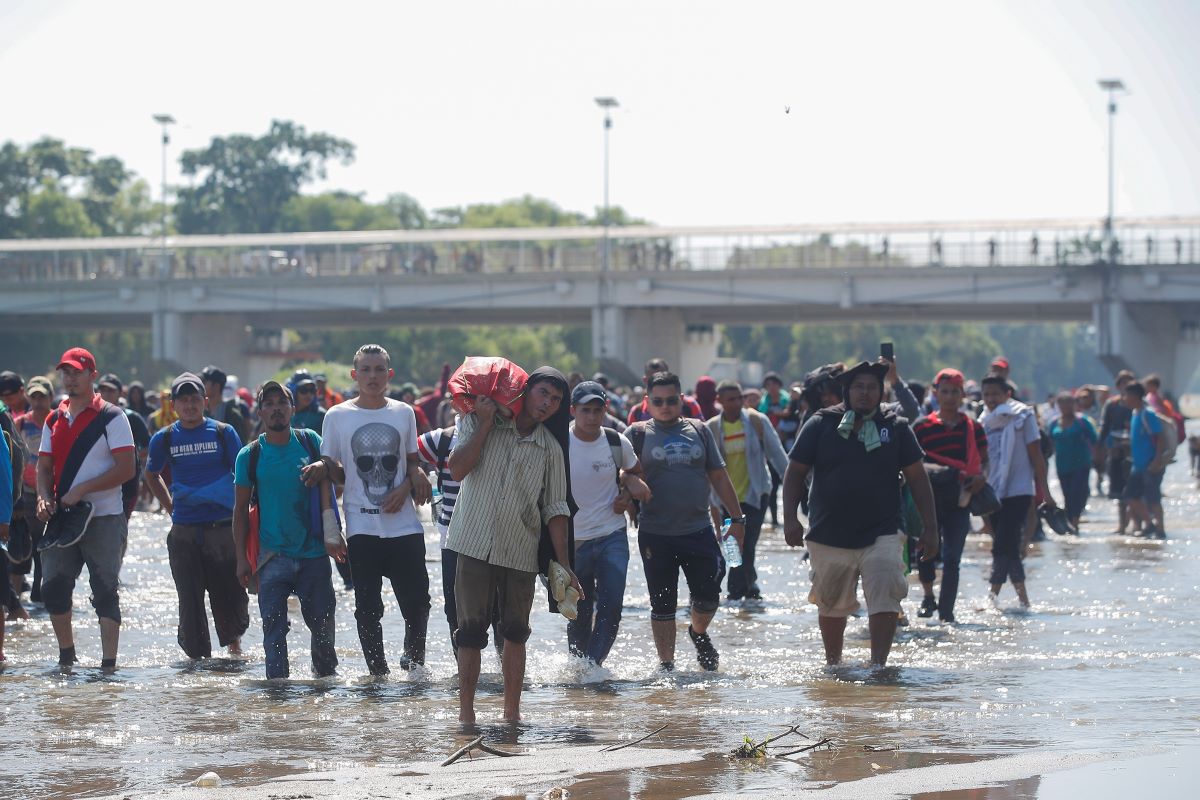Asylum-seekers, compelled to wait in Mexico after their claims were dismissed or denied under a Trump administration policy, will be allowed to return for another chance at humanitarian protection, the US Homeland Security Department said Tuesday.
Registration will begin Wednesday for asylum-seekers who were subject to the “Remain in Mexico” policy.
Advertisement
Under that criteria, it is unclear how many people will be eligible to be released into the US pending a decision on their cases, according to a senior Homeland Security official who spoke on condition of anonymity.
Syracuse University’s Transactional Records Access Clearinghouse said the move could benefit 34,528 migrants – 27,842 who denied for failing to appear in court and 6,686 whose cases were dismissed.
Many are believed to have left the Mexican border region, thinking their cases were finished, raising the possibility that they will make the dangerous trek to return.
The official said the administration is aware of those dangers and considering bringing people to the United States.
The move is another significant effort at redress for Trump policies that Biden administration officials and their allies say were cruel and inhumane and defenders say were extremely effective at discouraging asylum-seekers from coming to the US.
President Joe Biden halted the Remain in Mexico policy his first day in office and soon allowed an estimated 26,000 asylum-seekers with active cases to return to the US while their cases play out, a process that can take years in a court system backlogged with more than 1.3 million cases.
Many asylum-seekers whose claims were denied for failure to appear in court say they were kidnapped in Mexico. Others were too sick or afraid to travel to a border crossing in a dangerous city, sometimes with appointments as early as 4:30 am. Advocacy group Human Rights First tallied more than 1,500 publicly reported attacks against people subject to the policy.
Difficulty finding attorneys from Mexico meant few had legal representation, contributing to a measly 1.6 per cent grant rate among cases that were decided. US authorities gave asylum-seekers a list of low- or no-cost attorneys, but phones would ring unanswered and messages went unreturned.
The Biden administration has not decided whether to admit people who showed up for court and had their claims denied, the official said. The logic behind the expanded eligibility is to give people who didn’t appear in court another opportunity.
About 6,700 asylum-seekers had cases dismissed, the vast majority in San Diego, often after judges found the government made a mistake in applying the policy or the migrants failed to appear.
In all, about 70,000 asylum-seekers were returned to Mexico under the policy introduced in San Diego in January 2019 and expanded across the border after then-President Donald Trump threatened Mexico with higher tariffs if it didn’t do more to reverse a major spike in border crossings.
Those who were denied under the policy can register on a website operated by the UN refugee agency in collaboration with the International Organization of Migration.
The news was cheered by pro-immigration groups that have denounced Trump’s policies as cruel and inhumane while inviting criticism from more enforcement-minded advocates who say Biden’s policies have encouraged more people to seek asylum.
Eleanor Acer, Human Rights First’s senior director of refugee protection, called it a “welcome step” that would provide access to asylum to people who missed hearings due to kidnappings and other dangers.
Chad Wolf, an acting Homeland Security secretary who oversaw the policy, said giving asylum-seekers another chance after they lost their cases was “absurd.”
“This administration simply refuses to put the American people first when formulating their immigration policy. This is just more evidence,” said Wolf, now a visiting fellow at The Heritage Foundation.
The United States was by far the most popular destination for asylum-seekers last year, with 250,800 new claims, more than twice as many as Germany, with 102,600 claims, the UN refugee agency reported last week. Spain, France and Peru rounded out the top five.











